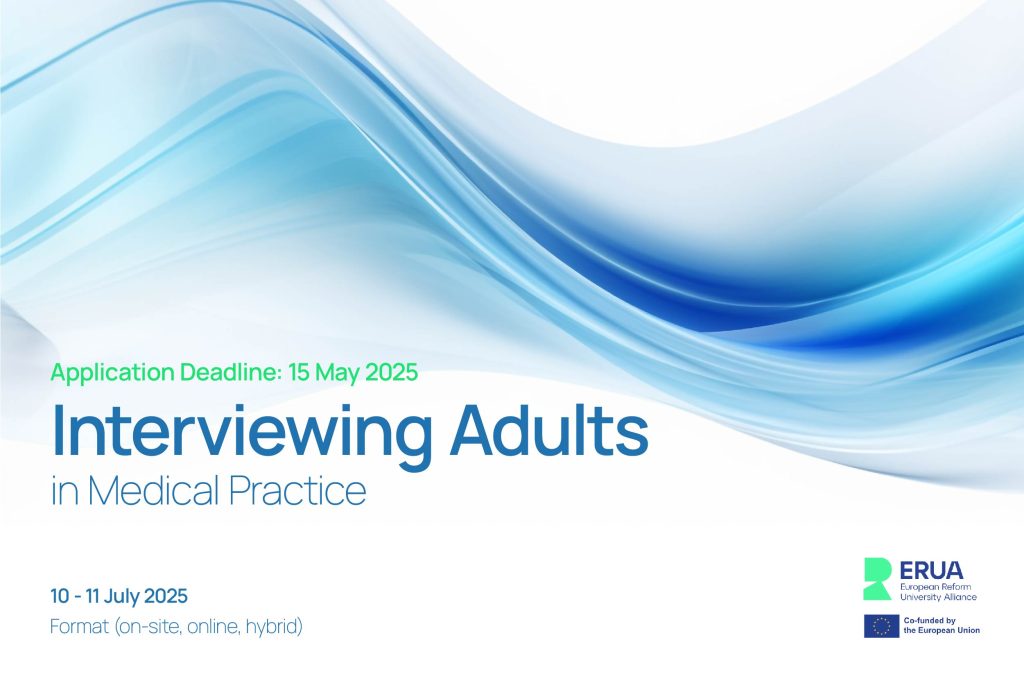Dates: 10th and 11th of July 2025
Location: Sofia, Bulgaria
Format: On-site
The course will offer a discussion of some important skills needed when conducting an interview with an adult in medical practice – demonstrating empathy, validation, and compassion. The practice includes presenting a difficult situation and training. The course includes 6 hours of lectures and discussions and 6 hours of practical activities.
Course schedule
10.07.2025
10.00 – 13.30 Interview with adults; Skills for showing Empathy, Confirmation, and Compassion – 4 academic hours /lectures, discussions/
14.30 – 16.00 Internship – participation in communicative situation – 2 hours training
11.07.2025
10.00 – 13.30 Self-Disclosures; Reflections and Interpretations – 2 academic hours /lectures, discussions/
14.30 – 16.00 Internship – simulation of difficult situation – 4 hours training
The students will gain basic knowledge in interviewing adults in medical practice, skills to express empathy, confirmation, and compassion, use self-disclosures, confrontations, orders, and commands.
Assessment:
The examination will be held through a power point presentation.
On successful completion the course will award 1 ECTS.
Who can apply:
We are looking for 10 Bachelor and Master degree students.
Place: New Bulgarian University, Sofia, Bulgaria.
Application deadline: 15th of May 2025
How to apply:
If you are interested, you can send an e-mail to Slavena Nikolova – snikolova@nbu.bg
Funding:
ERUA students can receive travel and accommodation funding from their home universities. Please contact your local coordinators.

